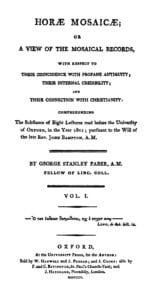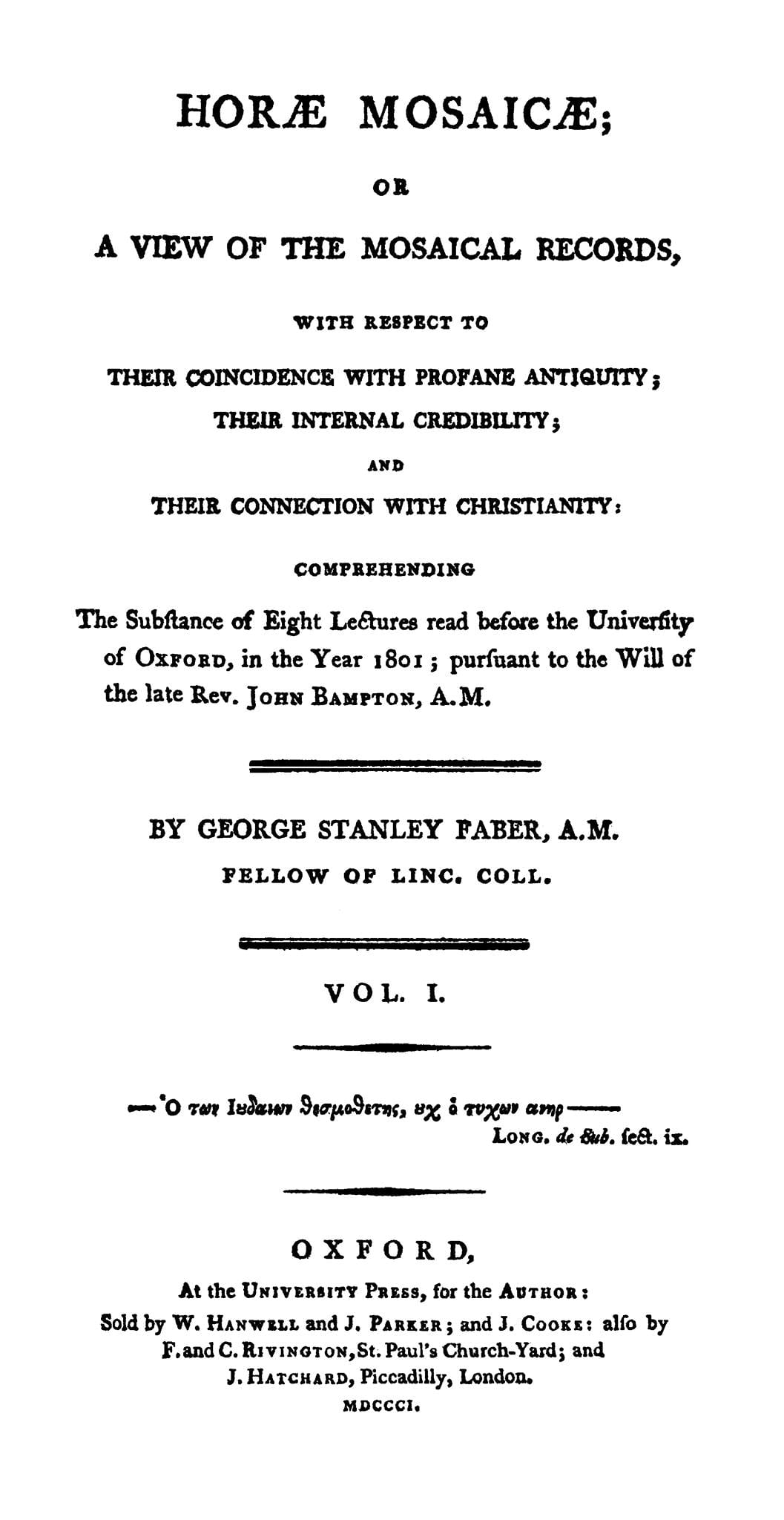 When the degree of evidence, necessary to establish the truth of any matter of fact traditionally received, has once been laid down according to the principles of right reason; it does not appear that we are bound to admit any religion is true, unless its tokens of credibility correspond with such a theory. Speaking abstractedly, it seems impossible for any theological system to be false, provided it can be shewn,
When the degree of evidence, necessary to establish the truth of any matter of fact traditionally received, has once been laid down according to the principles of right reason; it does not appear that we are bound to admit any religion is true, unless its tokens of credibility correspond with such a theory. Speaking abstractedly, it seems impossible for any theological system to be false, provided it can be shewn,
- That the promulger of it was not self-deceived into a belief, that he was divinely commissioned; a deception, which could only originate, either from Enthusiasm, or from contain false appearances supposed to be miracles:
- That he was not an imposter; or in other words, that he had no intention to deceive his followers:
- That authentic documents have been handed down to posterity from about the time, when such events took place, without any corruption or interpolation, except such various readings as are the natural and necessary consequence of frequent transcription; and which may, generally speaking, be corrected by a careful collation of the best and most ancient copies:
- And that the moral precepts be such, as are worth of the goodness and purity of God; tending to promote virtue, and to discountenance vice.
If we examine the Pagan mythologies by these rules, we shall invariably find them deficient in one or other, generally in all of them. We have no sufficient cause to believe, that either Zoroaster, or Thoth, or Orpheus, or Numa, were really inspired, or even fancies themselves to be so. We rather have every reason to imagine, that they wished to deceive their followers, for the purposes of acquiring political influence. But even for a moment allowing these two particulars, what genuine documents have we or the original propagation of Paganism? We have nothing to reply upon, but a blind and uncertain tradition. Neither the Orphic hymns, nor the Theogony of Hesiod, much less the Metamorphoses of Ovid, pretend to have been written at the time, when the things, which they relate, were transacted. Where can we find any credible account of the exploits of Jupiter or Hercules, up on the supposition that they were real deities? Upon what foundation are those pretended revelations built, inculcating the doctrines of polytheism? The true sense of them is either wrapped up in the mysterious secrecy of the priesthood, or disguised in the allegories of the poets. The wiser part even of the heathen world contemned and despised such absurdities; and the institution of the celebrated mysteries of Eleusis completely withdrew the veil from these wild fables, by declaring, that the whole body of heathen Gods were only men deified for the greatness of their actions, which the ignorance and blind veneration of the age concerted into miracles. With regard to the fourth rule, it may with confidence be asserted, that it excludes, without a single exception, every religion of Paganism from any claim to divine inspiration. So shockingly depraved, and so deeply corrupted are men in a state of nature, that the ancient idolaters not only committed every abomination, but even deified their enormities. Their wretched gods were monsters of cruelty, lewdness, and profligacy. While Moloch, Nereda, and Theutates were appeared with the blood of human victims; no offering could be made at the shrine of Mylitto and Venus, so accepted as female chastity and honour. Whenever the demon of Paganism appeared, cruelty, debauchery, and impurity were his constant attendants; nor was his baneful influence less conspicuous in the rites of Mexico and Peru, than in those of Greece, Canaan, or Hindostan. The very principle of the ancient idolaters were totally vitiated; what then could we expect from their practice? If the immortals were guilty of such vices, what blame could attach to the mere man, who indulged in them? From this short review it sufficiently appears, that Paganism in so shape or country could be the religion of a most pure and most wise Deity.
George Stanley Faber, Horae Mosaicae, vol. 1 (Oxford: University Press, 1801), pp. 251-255




